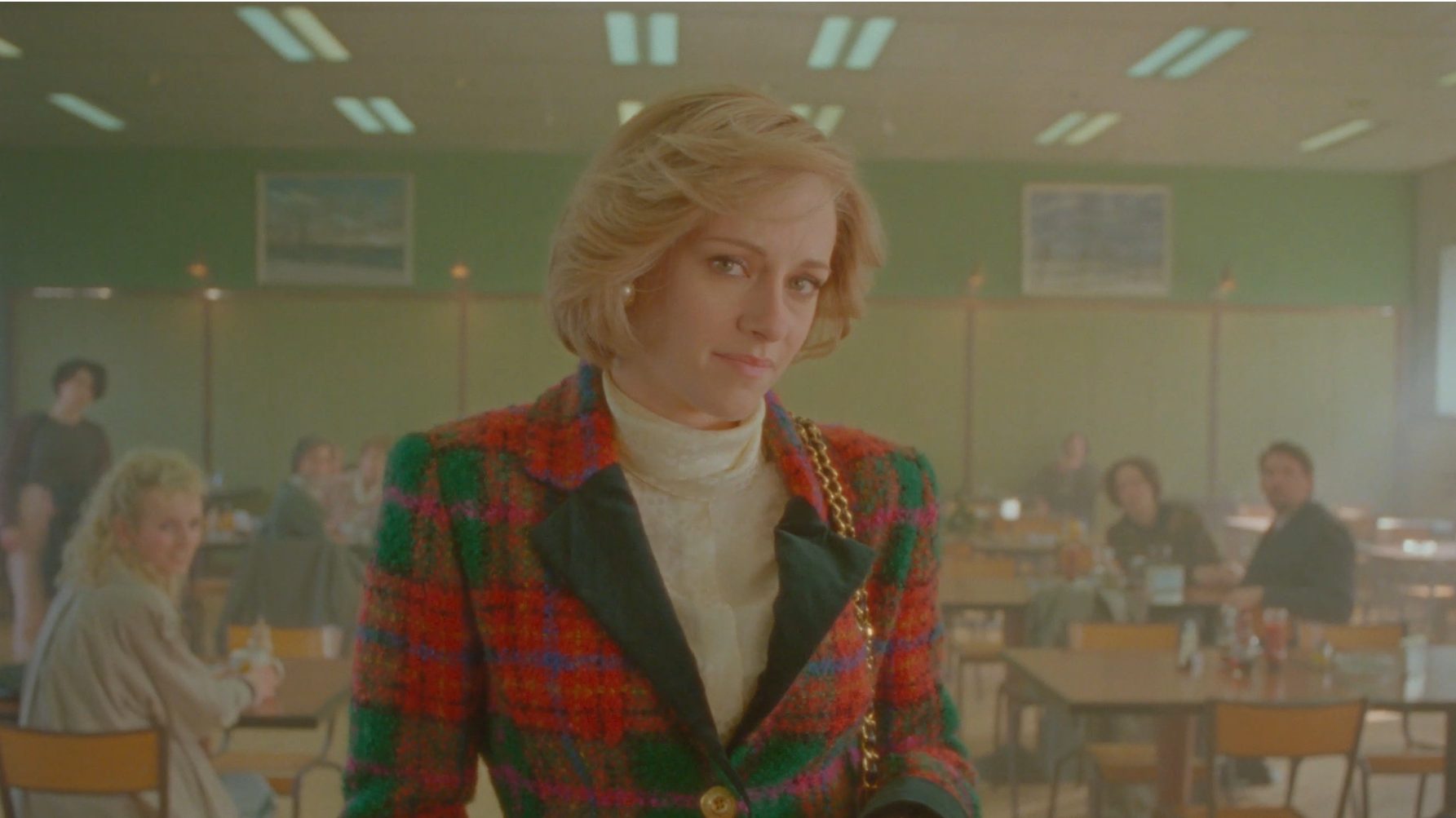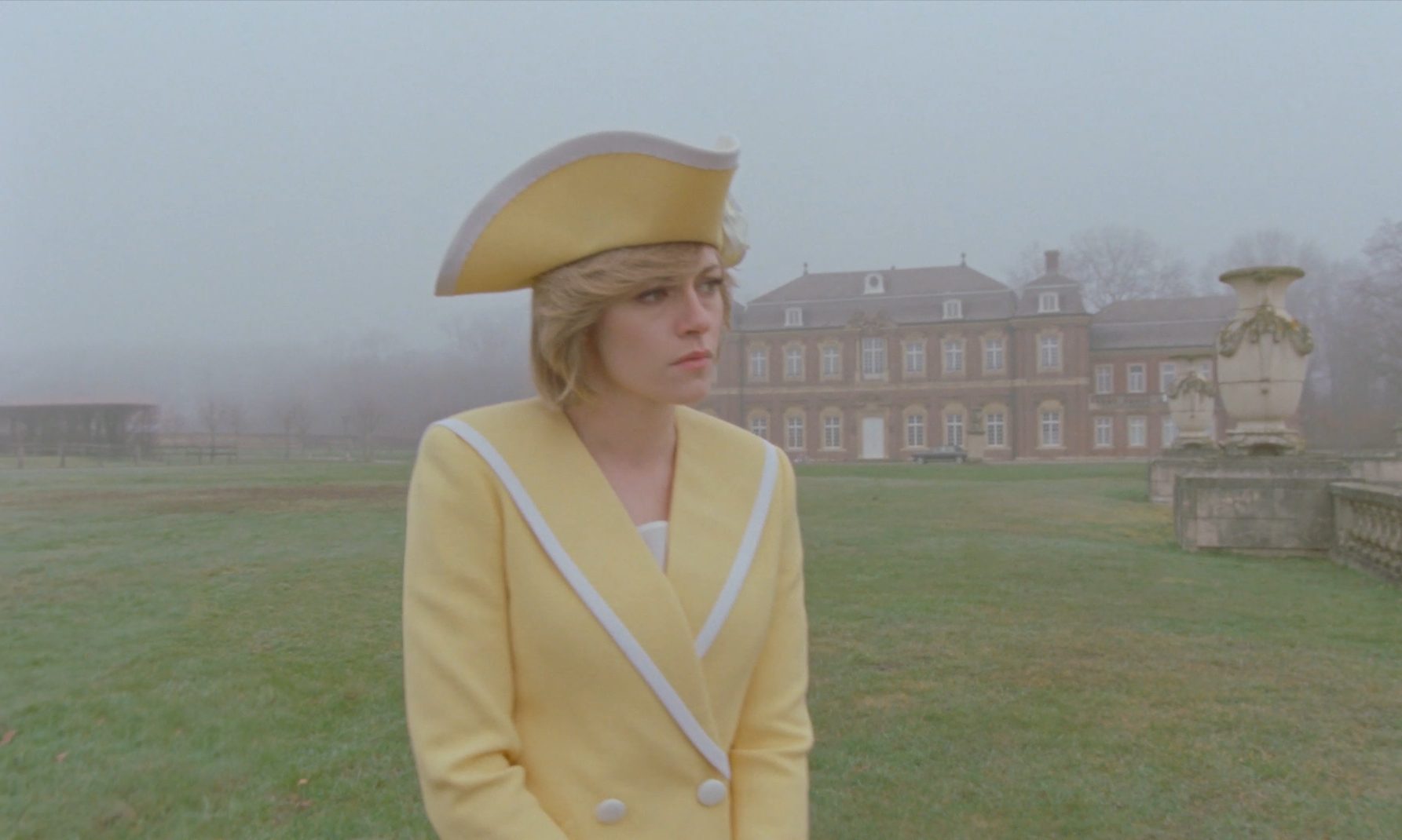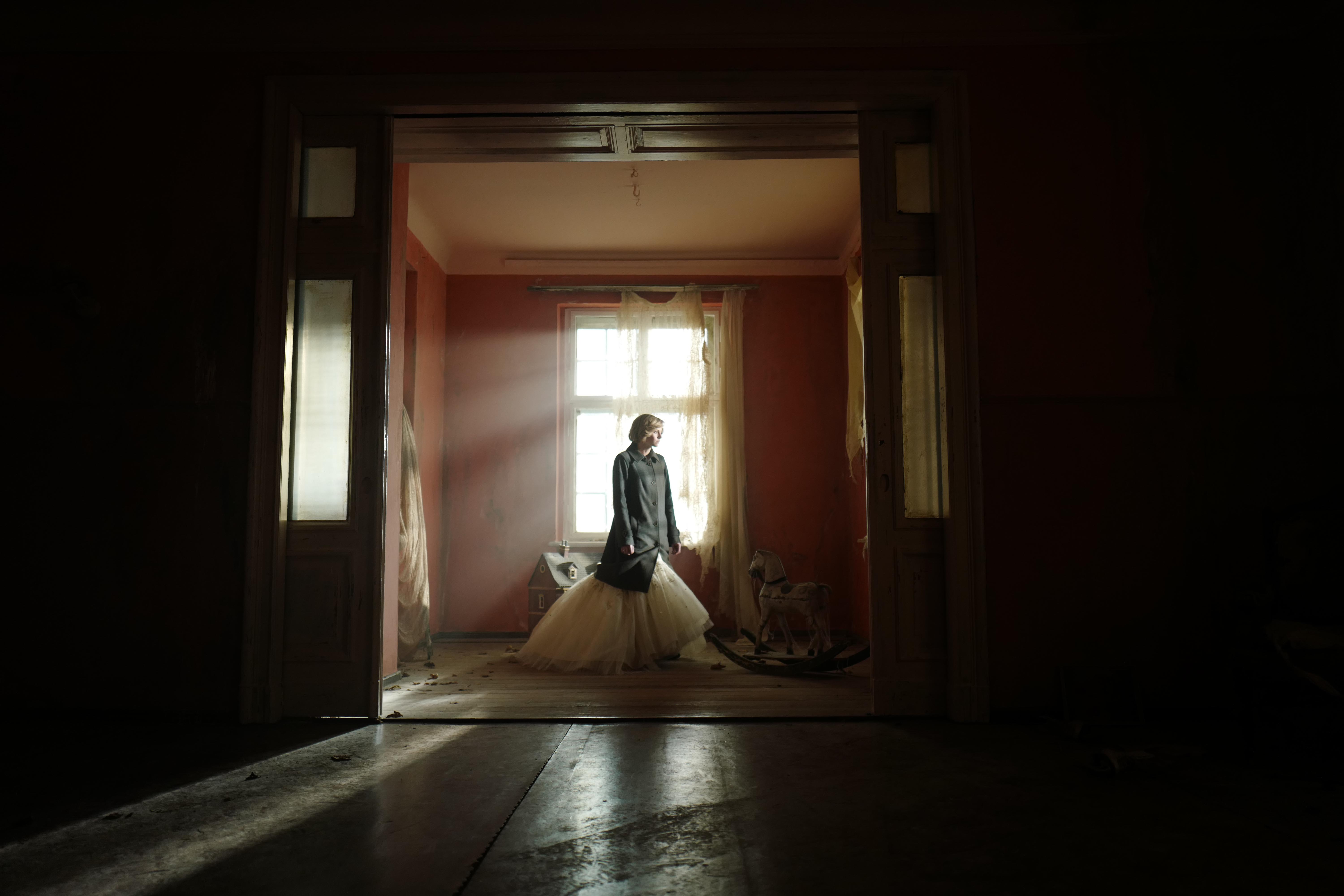

We’re told at the outset of Spencer that the film is a “fable” taken from real life. I suppose this is director Pablo Larraín’s way of letting us know that his film, written by Steven Knight, isn’t based on actual, factual events in the lives of Princess Diana (Kristen Stewart) and the British Royal Family. But Spencer is less a tale with a moral lesson at its heart, than it is a confounding fever dream.
We meet Diana as she is bound for Sandringham House, the Queen’s estate in Norfolk, on Christmas Eve 1991. The Wales’ marriage is on the rocks, and she’s an object of relentless media scrutiny. Separated from Charles (Jack Farthing) and eager to exert her independence, she’s driving herself and gets lost, despite having grown up nearby at the now shuttered Spencer family seat. This gives her occasion to tell someone, “I’m lost,” which is one of the film’s many themes that are not just literally signposted, but as here, stated aloud. Another hangs over the Sandringham House kitchen, reminding the staff to work quietly so as not to disturb the royals: “They can hear you!”
Over her three days at Sandringham, Diana struggles with the rigid protocol. Outfits have been pre-approved for every occasion; the atmosphere, both literal and metaphorical, is frigid; holiday traditions, like getting weighed upon both arrival and departure, are mandatory. This last, supposedly fun activity—everyone is expected to put on weight to prove that they had a thoroughly jolly Christmas—seems at first like a typically heavy-handed nod to the Princess’s struggles with bulimia. But later, Charles is mercilessly snide about her disordered eating, and the camera’s loving attention to the lavish holiday meals is juxtaposed with scenes of Stewart hunched over a toilet, her ivory gown spread around her. So much for allusion.

That’s the image echoed in the film’s poster, and in hindsight it feels a bit like a prank: an image of elegant despair that turns out to be something much…ruder. Spencer is far from the graceful biopic that many diehard Di fans are probably hoping for. This film is something darker and weirder, and once I understood that—another early clue is its squealing, discordant jazz score— I found I liked it more. The highly composed dinner scenes feel like something out of a Kubrick film or possibly The Favorite, and the Windsors themselves for the most part appear as silent, watchful ghouls—almost cartoonish caricatures. Even Diana’s multiheaded shower echoes a madhouse delousing.
There are also elements of possibly unintentional camp. As the pressure begins to take its toll on the fragile princess, Diana begins to have visions of Anne Boleyn—try to unravel that symbolism. Meanwhile, the presence of Farthing and Timothy Spall (as some sort of sinister butler type person) calls to mind their performances in the farcical British series Blandings.

But as Diana’s paranoia increases, the film gets ever more hallucinatory and we begin to wonder what’s real. Surely not the apparitions of Henry VIII’s second wife, but what about the impossibly supportive lady’s maid Maggie (Sally Hawkins) who disappears for much of the second act and doesn’t seem to have any characteristics beyond concern for Diana’s well-being. Was she ever really there? Larraín, who directed AppleTV+’s recent adaptation of Stephen King’s Lisey’s Story, doesn’t seem to have quite gotten the horror out of his system yet, and things go fully macabre when the princess breaks into her abandoned childhood home one Christmas night. We’re talking a full-on haunted house nightmare, complete with ghosts of Diana’s past.
But, on the third day—Boxing Day—she rises again. Buoyed by Maggie, who returns just in the nick of time, Diana finds the strength and peace of mind she needs to yank the film back into a more conventional, inspiring mold. It’s the uplifting dawn after the dark night of the soul; there’s a sing-along to an ’80s pop song and we’re left shaking our heads at what we’ve just seen.
Spencer is a wild, at times ham-fisted mess of a movie. But with so much Diana content coming our way over the past year or so, you kind of have to admire Larraín for taking this much of a swing. Spencer is less concerned with the historical record or the palace soap opera than it is in giving us a sense of Diana’s presumed state of mind in the pressure cooker context of the Royal Family. And Stewart, bless her, really does commit to her character’s baroque unraveling. Much like Diana herself, if you stop trying to make Spencer fit into your glamorous idea of what a Royal, Oscar-bait-y biopic should be, you may just find yourself bizarrely entertained.














